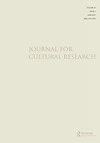Politik kekirian: Ucok and Homicide’s brokerages of protests in Bandung, Indonesia
IF 0.6
Q1 CULTURAL STUDIES
引用次数: 0
Abstract
ABSTRACT In this article, I examine politics and protest during the post-authoritarian Indonesian regime by analysing the song ‘Puritan (God Blessed Fascists)’ by Homicide (2002)., drawing from my fieldwork in Bandung and Jakarta to do so. By framing my analysis through Bräuchler’s (2019) notion of rappers as ‘protest brokers’, I identify three key sites of protest in Homicide’s song: morality, ideology, and policy. My research shows that Indonesian rappers in the early 2000s, especially those from Bandung, tried to fight the rise of conservatism and fascism by reclaiming their space through the so-called ‘Bandung underground scene’. In Bandung, rappers, their politics and their acts of protest were direct, despite the city and the region being home to the largest concentration of radical Islamic groups in Indonesia. By tapping into their ‘leftist’ ideologies, Homicide established a resistance network in which other rappers could participate and reclaimed their space in an increasingly politicised city.Politik kekirian:Ucok和凶杀案在印度尼西亚万隆的抗议活动
摘要在本文中,我通过分析《凶杀》(2002)的歌曲《清教徒(上帝保佑的法西斯主义者)》来审视后独裁印尼政权时期的政治和抗议。,根据我在万隆和雅加达的实地调查,通过Bräuchler(2019)将说唱歌手定义为“抗议经纪人”的概念,我确定了凶杀歌曲中抗议的三个关键地点:道德、意识形态和政策。我的研究表明,21世纪初,印尼说唱歌手,尤其是万隆的说唱歌手,试图通过所谓的“万隆地下场景”来夺回他们的空间,以对抗保守主义和法西斯主义的兴起。在万隆,说唱歌手、他们的政治和抗议行为都是直接的,尽管该市和该地区是印尼激进伊斯兰团体最集中的地方。通过利用他们的“左派”意识形态,凶杀案建立了一个其他说唱歌手可以参与的抵抗网络,并在一个日益政治化的城市中夺回了他们的空间。
本文章由计算机程序翻译,如有差异,请以英文原文为准。
求助全文
约1分钟内获得全文
求助全文
来源期刊

Journal for Cultural Research
CULTURAL STUDIES-
CiteScore
1.40
自引率
0.00%
发文量
23
期刊介绍:
JouJournal for Cultural Research is an international journal, based in Lancaster University"s Institute for Cultural Research. It is interested in essays concerned with the conjuncture between culture and the many domains and practices in relation to which it is usually defined, including, for example, media, politics, technology, economics, society, art and the sacred. Culture is no longer, if it ever was, singular. It denotes a shifting multiplicity of signifying practices and value systems that provide a potentially infinite resource of academic critique, investigation and ethnographic or market research into cultural difference, cultural autonomy, cultural emancipation and the cultural aspects of power.
 求助内容:
求助内容: 应助结果提醒方式:
应助结果提醒方式:


